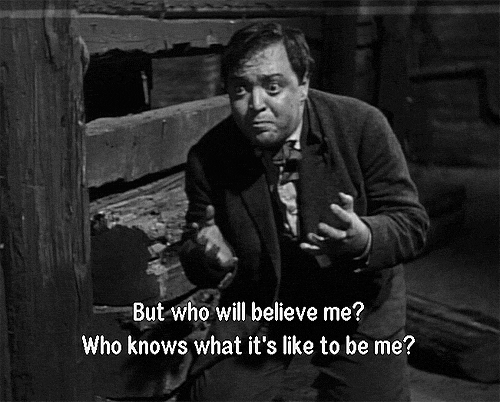SYMPATHY FOR THE DEVIL: The Rhetoric of Compassion
Thank you to Samantha for the picture!

Prof. Ellwood Wiggins, wiggins1@uw.edu (Office Hours: M 1-2:30, and by appt on Zoom)
TA Justin Mohler, jmohler@uw.edu (Office Hours: MW 10:30–11:30, DEN 359)
President Obama called the “empathy deficit” the most pressing problem facing America. In this course, we will examine what’s at stake in becoming a more empathetic nation.
Is compassion the foundation of human morality or a dangerously unreliable emotion? This course examines the strategies and motivations in different media of fostering sympathy for commonly held enemies or discriminated groups. The syllabus runs from Ancient Greece to depictions of Nazis and terrorists in modern film, and considers philosophical assessments of sympathy alongside examples of its aesthetic manufacture. Half of our readings are in moral philosophy (e.g., Aristotle, Spinoza, Rousseau, Adam Smith, Kant, Nietzsche, Arendt), and in each case we use the literary text or film (e.g., Sophocles, Shakespeare, Lessing, Eliot, Brecht) as a kind of experimental field to evaluate the philosophers’ concepts and claims about the moral efficacy of compassion.
This course engages in team-based learning. Groups work to engender sympathy for a 'bad guy' in three genres: a speech, a scene, and a visual project. During the final, groups will present their project to the class.
This course will count toward Diversity Credit, and (depending on which section) VLPA or I&S. Cross-listed with: Comparative Literature, Philosophy, German.
Required Texts:
Course Packet (EZ Copy N Print on the Ave.)
Sophocles, Philoktetes (trans. Seth Schein, Focus Publishing, 2003)
Lessing, Nathan the Wise (trans. Ronald Schechter, Bedford, 2004)
All readings and discussion in English!